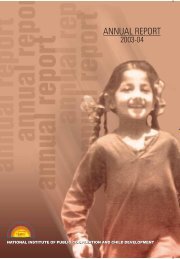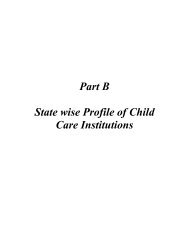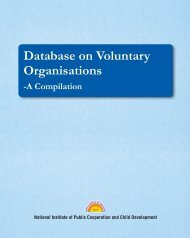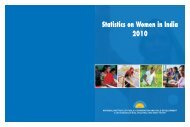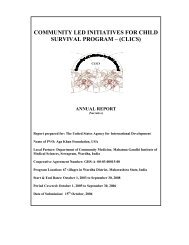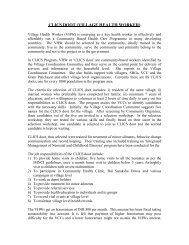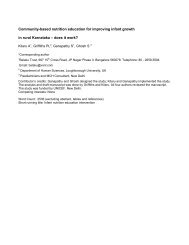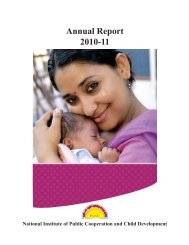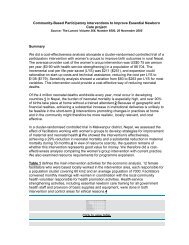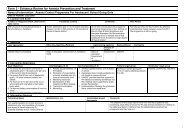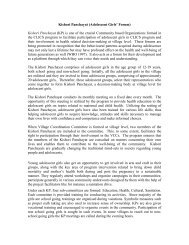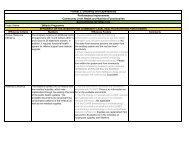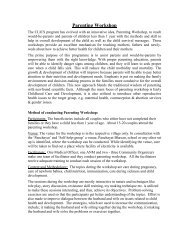Vol. XVI Issue 2 April - June 2012 2012 Documentation ... - Nipccd
Vol. XVI Issue 2 April - June 2012 2012 Documentation ... - Nipccd
Vol. XVI Issue 2 April - June 2012 2012 Documentation ... - Nipccd
You also want an ePaper? Increase the reach of your titles
YUMPU automatically turns print PDFs into web optimized ePapers that Google loves.
37. Jain, L. (2010).<br />
An Impact assessment of SHG initiative and capacity building of<br />
stakeholders through micro finance towards women empowerment in<br />
rural India. Journal of Advances Developmental Research, 1(1) : 107-12.<br />
Background: SHG (Self Help Group) may be a sustainable tool of entire<br />
development for the weaker section of the society.<br />
Objectives: To know the efforts required for group formation that could survive<br />
in desired manners; to know the present vision of SHG’s members and<br />
determine the future direction of integrated SHG system respectively and the<br />
desired improvement; to assess role of stakeholders in SHG and search<br />
appropriate alternatives for their capacity building; to know the impact of support<br />
services available for SHG rendering its promotion and SWOT analysis of SHG<br />
towards women empowerment in rural area.<br />
Methodology: The present study covered only one village- Pundhra in Manasa<br />
Jaluka of Gandhinagar district in Gujarat. Ten SHGs formed between the years<br />
1996 to 2003 in the village were selected randomly. Then five members from<br />
each SHG along with group leaders on the basis of availability at the time of<br />
interview.<br />
Findings: About 78 per cent people convinced to form or join in group join on<br />
family and social relationship; 30 per cent respondents said that they join the<br />
group under socio-political influence as well as conveyed by neighbor while 25<br />
per cent came with the understanding that savings will be collected and may be<br />
used in mutual urgency (25%) and rest of the them (20%) thought was to get<br />
bank loan to get rid of moneylender’s exploitation; about the meeting of group<br />
there is mix situation i.e. only 30 per cent respondent assured about regular<br />
meeting while 35 per cent accept that meeting held but after intervention or<br />
initiation of bank manager or group promoter/ organizer. The situation showed<br />
that in 45 per cent respondent expressed that only heads of the group discuss<br />
and others are passive and 25 per cent said only some selected members<br />
participate in discussion while the rest 30 per cent give opinion that all<br />
members participate in decision making; majority (75%) has no fear while some<br />
of them (15%) showed the possibility of undue happening being in intervention<br />
of male family members and rest (10%) could not say clearly about future<br />
situation; opinion of members about reliability regarding accounting, system<br />
maintenance (25%), although they don’t have wish to cheat yet no proper<br />
knowledge of accounting system (65%), can’t say anything (10%); under SWOT<br />
analysis SHG’s for women empowerment, the respondents disclose their view<br />
as a part to strengthen and proper use of opportunities available in the<br />
68<br />
__________________________________________________________________________________<br />
DCWC Research Bulletin <strong>Vol</strong>. <strong>XVI</strong> <strong>April</strong> - <strong>June</strong> <strong>2012</strong>



